Vegan Passover Recipes and Seder Plate Guide
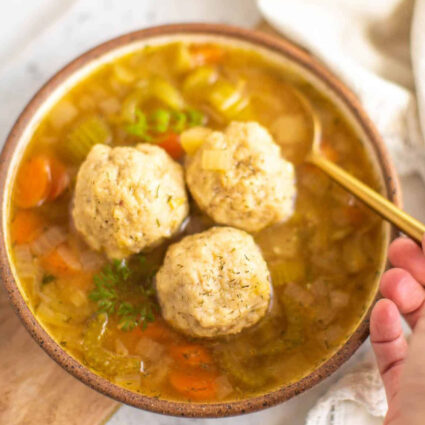
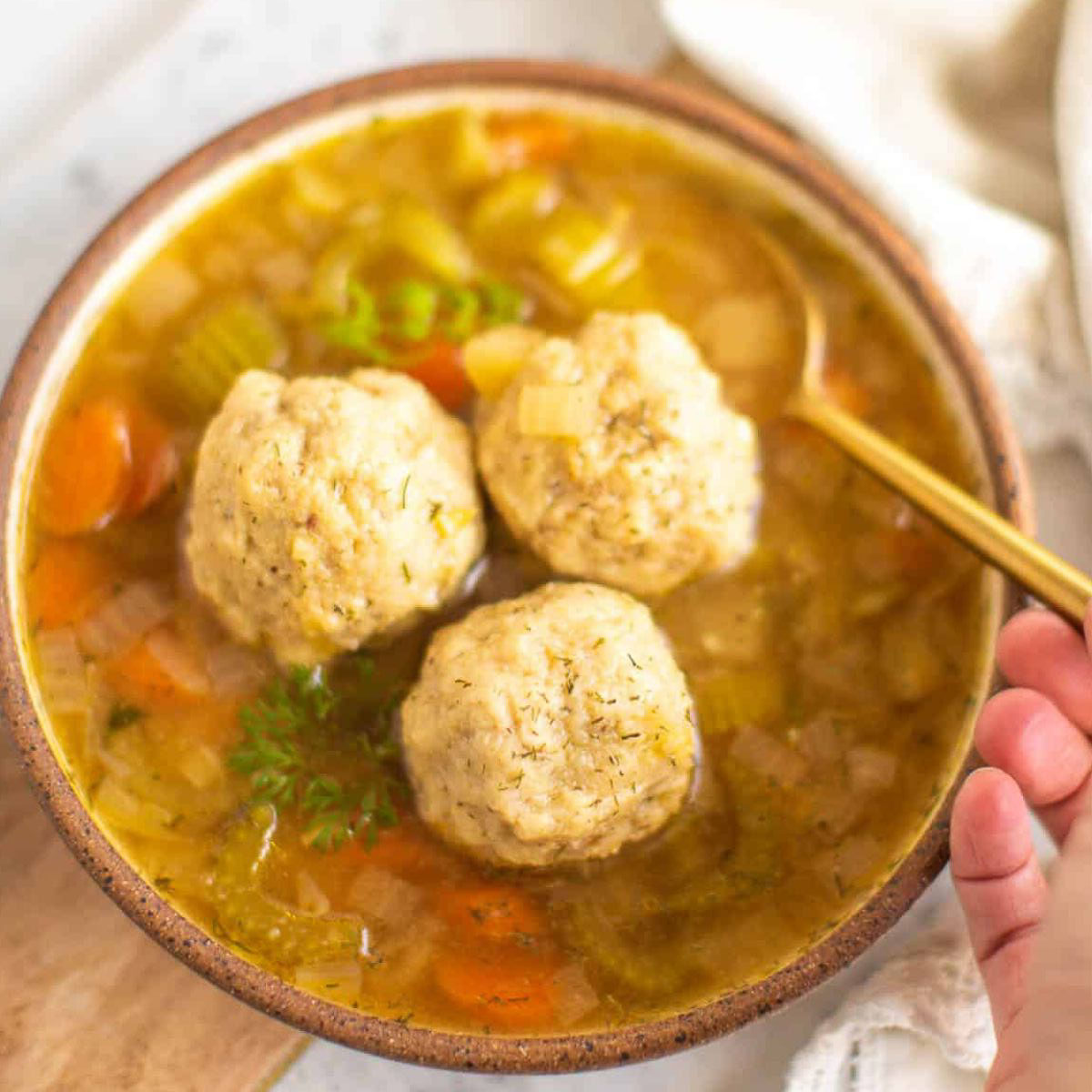
The spring holidays are a celebration of this growth and awakening and a springboard into the year. Passover always falls at the beginning of this period so it’s no surprise that it’s a favorite holiday of many.
Many liken Passover to Thanksgiving in America, because it is a joyous time to gather with family and friends, share our gratitude and love with one another, and feast on delicious food. In fact, the first Thanksgiving in America is thought to have been based on the ancient Israelite celebration of Sukkot, one of the Three Pilgrimage Festivals commanded by the Torah, which includes Passover!
We tell the story of Passover through a Haggadah—the book that guides us through a traditional Seder (Passover meal). Hosting a vegan Passover seder affords you the opportunity to honor Jewish traditions, including commandments to avoid causing unnecessary suffering to animals, act with compassion to animals, and protect the environment, to name a few.
In fact, Jewish beliefs and vegan values are more aligned than you might think. So, if you’re vegan and hosting a seder, but not all of your guests are vegan, this guide has you covered!
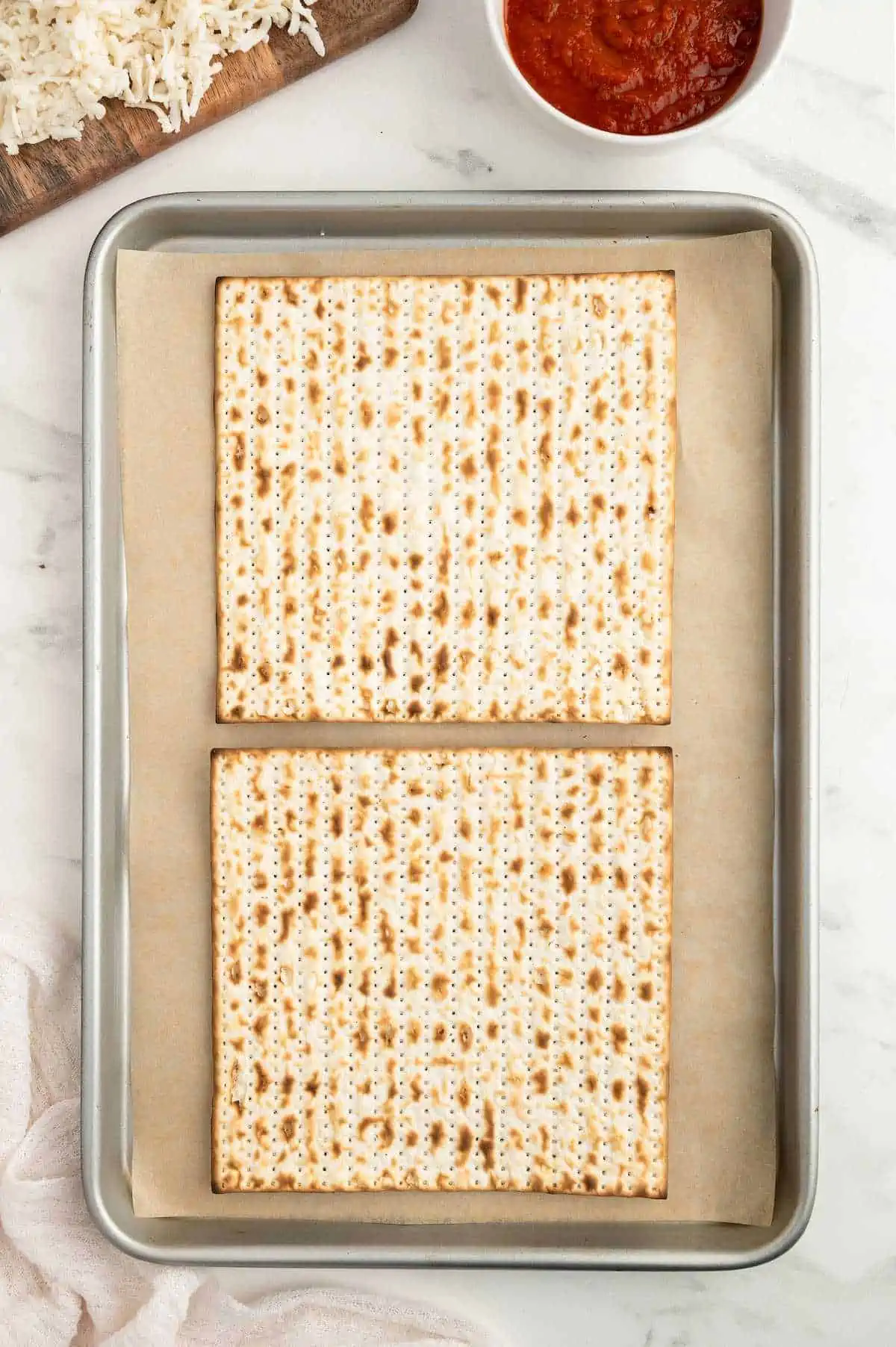
Table of Contents
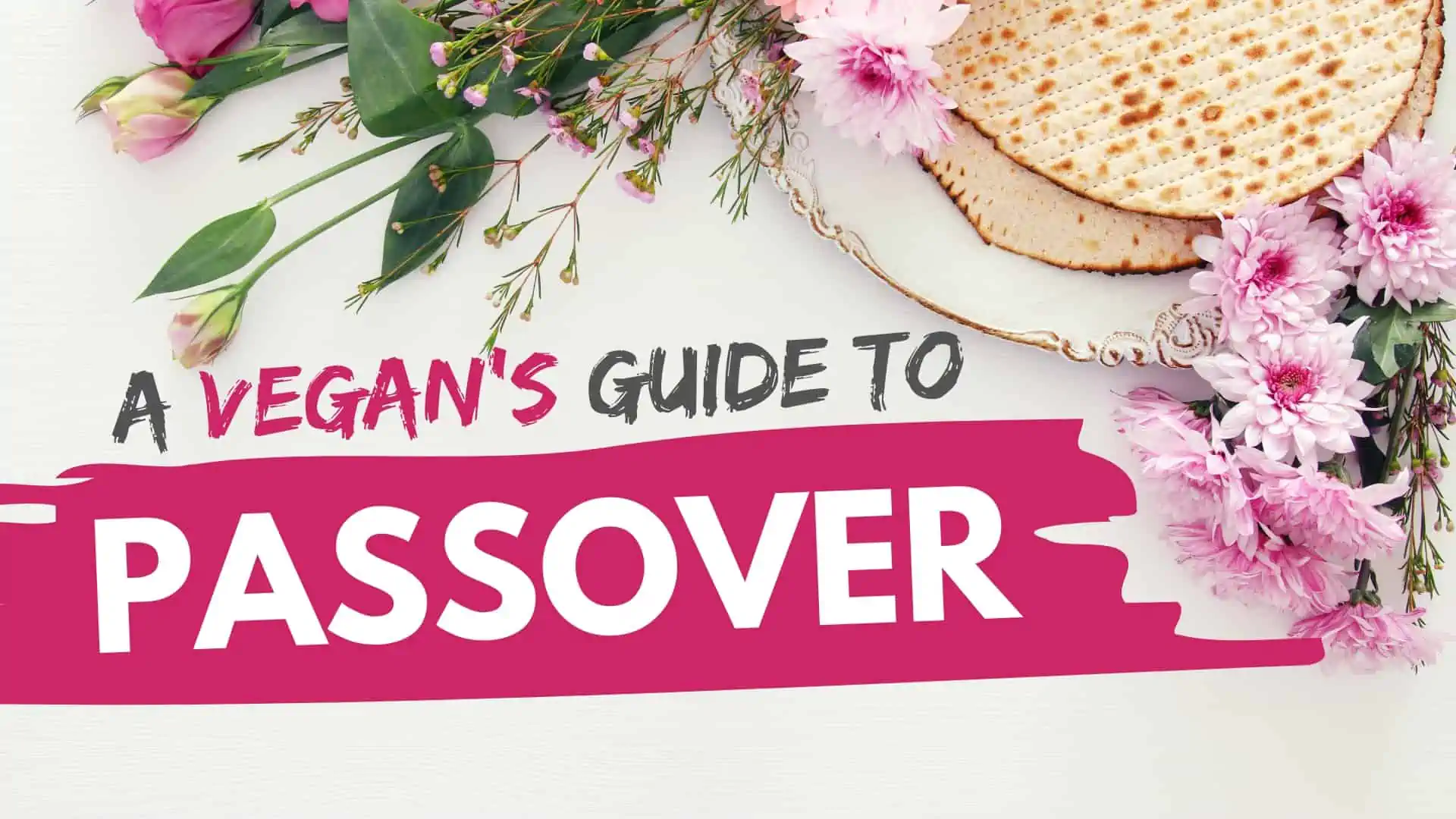
Focus on Dishes That Feature Beautiful, Seasonal Vegetables
The Torah places great emphasis on the symbolic and ritualistic links between Passover and the spring season. From the agricultural roots to the symbolic rebirth and redemption after the winter season, both the replenished human spirit and the nutritious spring vegetables on your Passover plate are extremely meaningful.
Your festive meal is not the time to break out the vegan ham or other faux meat dishes. Those foods will only highlight the traditional foods that your omnivorous guests are missing. It will also likely create an unfavorable comparison if they haven’t exposed their palettes to plant-based foods before.
Instead, focus on whole, plant-based foods that are so delicious and familiar that people won’t even miss the meat. Salads and sides featuring Spring vegetables like asparagus, green beans, peas, and artichokes are all wonderful choices. Vegetable dishes such as ratatouille or spiralized vegetables with vegan pesto are also beautiful selections to add to the table.
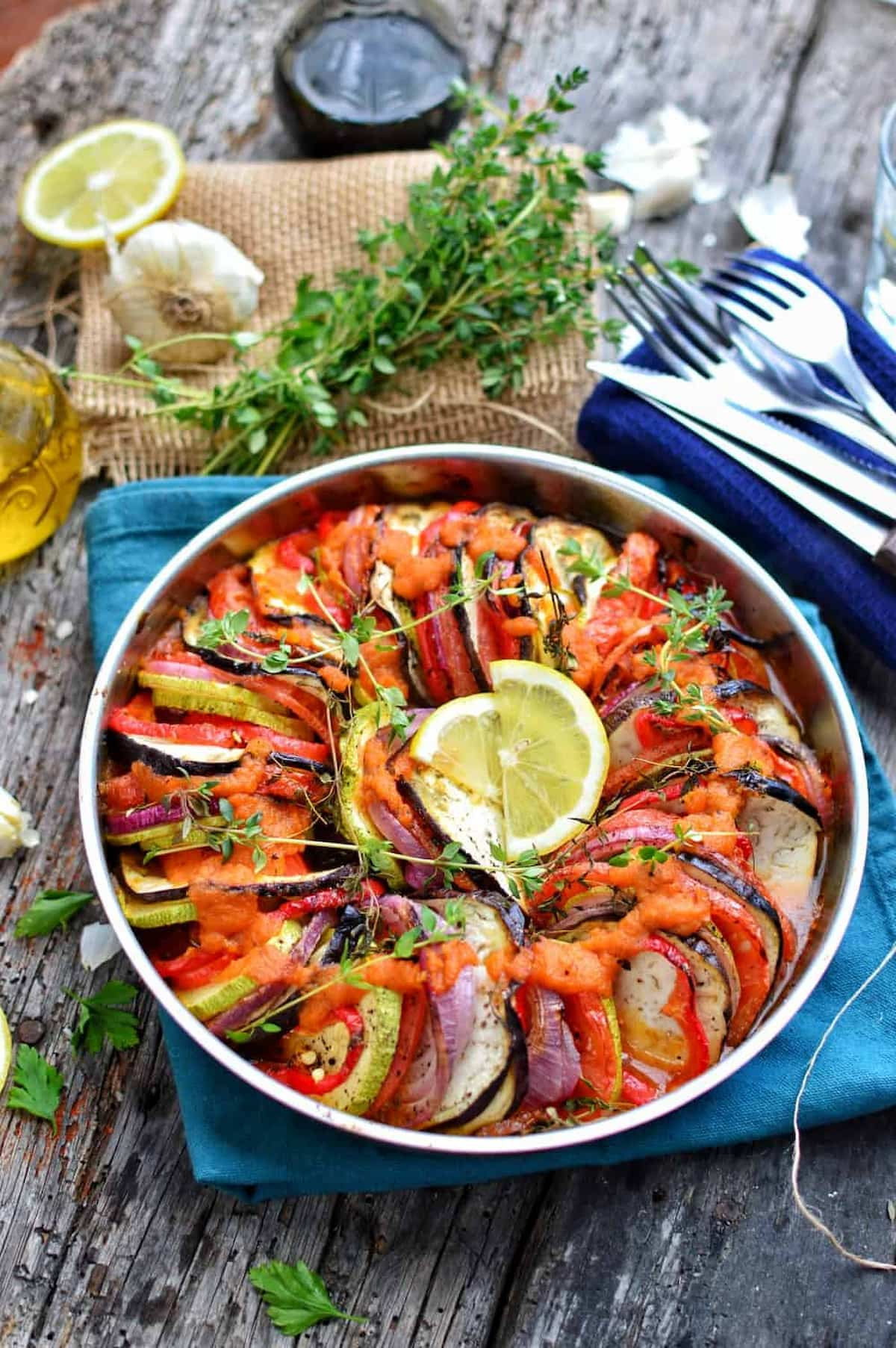
Vegan Passover Recipes Your Guests Will Love
If you’re a long-time vegan you know that it’s super-easy to adjust recipes to make them vegan, but if you’re not vegan, you may not be aware of this. Your non-vegan friends and family will be excited once they see just how amazing their traditional dishes taste with vegan ingredients!
Vegan Matzo Ball Soup
Get ready to slurp your way into vegan comfort food heaven with this delicious matzo ball soup recipe! This vegan matzo ball soup recipe will ensure that no one misses the traditional start to the meal.
Fluffy and tender matzo balls float in a savory broth that is the perfect balance of comforting and refreshing. Whether you’re vegan, vegetarian, or just looking for a delicious and easy Passover meal, this soup will make you feel like a bubbe’s favorite grandchild.
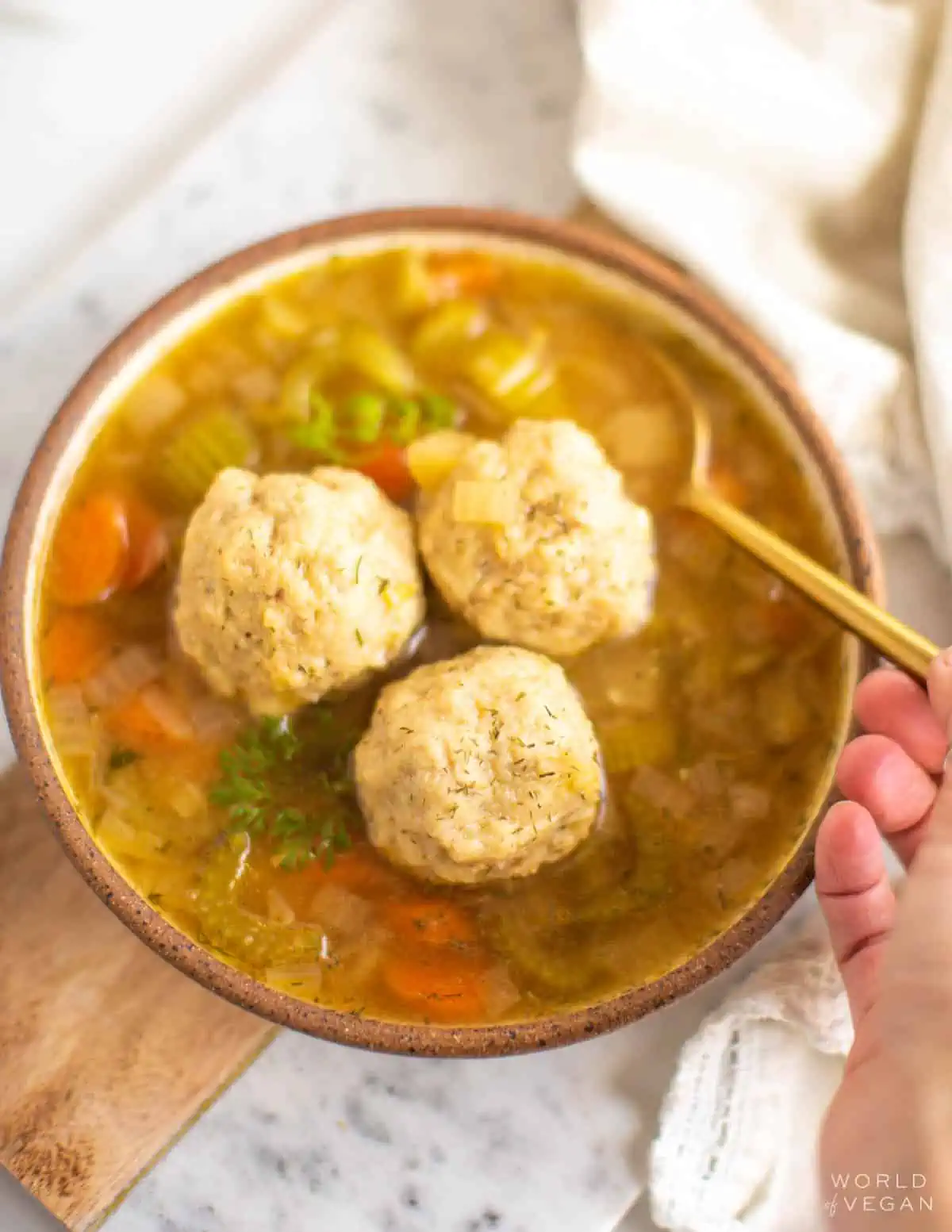
Matzah Pizza
Who says pizza is off-limits during Passover? Enter matzah pizza, the ultimate way to satisfy your cravings during the holiday.
Simply take a piece of matzah, top it with tomato sauce, vegan cheese, and your favorite toppings. Think roasted vegetables, plant-based sausage, or even traditional Passover flavors like charoset or haroset (a sweet mixture of apples, nuts, and wine).
Here are 10 delicious spins on plant-based matzah pizza.
The crispy matzah crust adds a satisfying crunch, and the toppings add a burst of flavor that will have you forgetting all about chametz. Whether you’re celebrating with family or enjoying a solo meal, matzah pizza is a delicious and easy way to add some fun to your Passover menu.
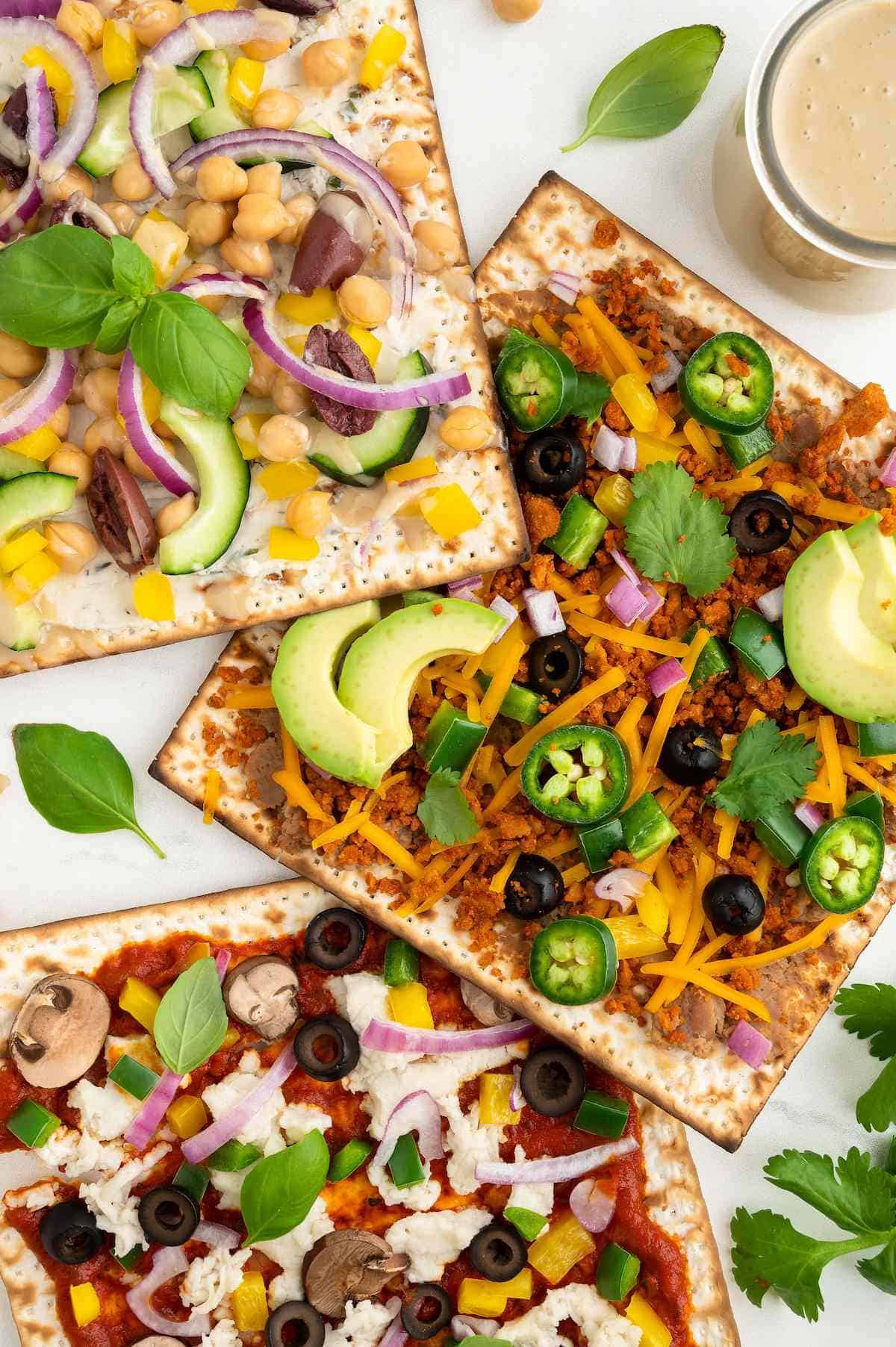
Vegan Charoset
Charoset is a sweet, fruit and nut-based mixture that is typically served as part of the Passover seder. It’s is symbolic of the mortar that the Jewish people used to make bricks during their enslavement in Egypt.
The ingredients used to make charoset can vary depending on the region and cultural traditions, but it often includes chopped apples, walnuts or almonds, sweet wine, cinnamon, and honey. While it traditionally uses honey (which is not vegan), agave or vegan honey is an easy swap that no one will even notice.
Plant-Based Chopped Liver
This plant-based chopped liver by Jewish Food Hero is a crowd pleaser. Vegan chopped liver is a delicious and nutritious alternative to traditional chopped liver, which is made from chicken liver.
Instead of using animal products, this vegan version is made with a combination of sautéed mushrooms, onions, and walnuts, which are blended into a flavorful and rich spread. This is perfect for spreading on Matzah or serving as a dip for vegetables.
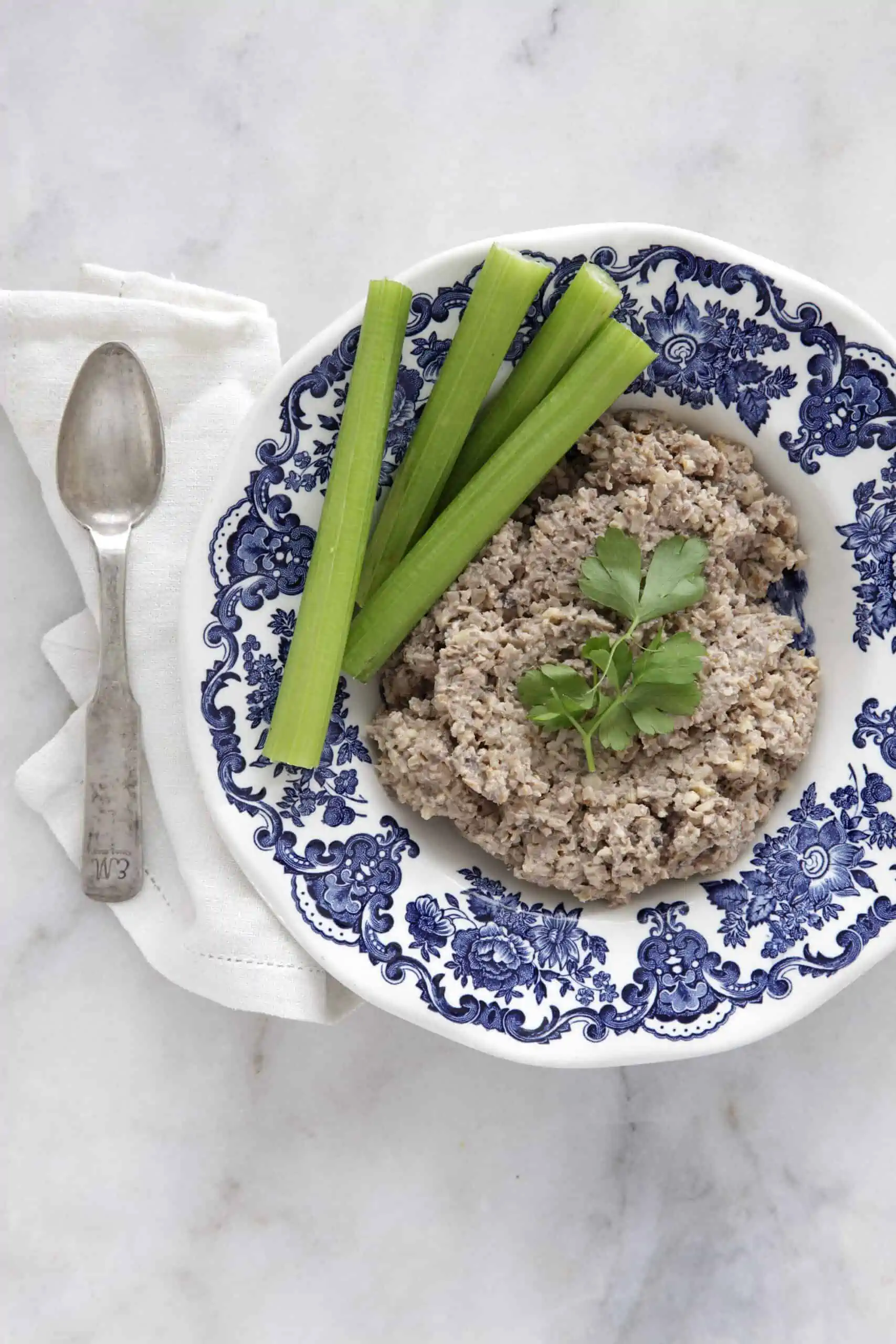
Matzah Tater Tots
Looking for a creative way to take your Passover menu in a new direction? These matzah tater tots are made with matzo meal and just a few other ingredients, including a simple blend of seasonings that will have your taste buds doing the Hora. Plus, they’re vegan, gluten-free, and totally kosher for Passover.
Serve them as a fun appetizer, side dish, or even as a snack while you wait for Elijah to arrive. They’re perfect for dipping in ketchup, mustard, or even horseradish for an extra kick. With these vegan matzah tater tots, you’ll be the talk of the seder table, guaranteed!
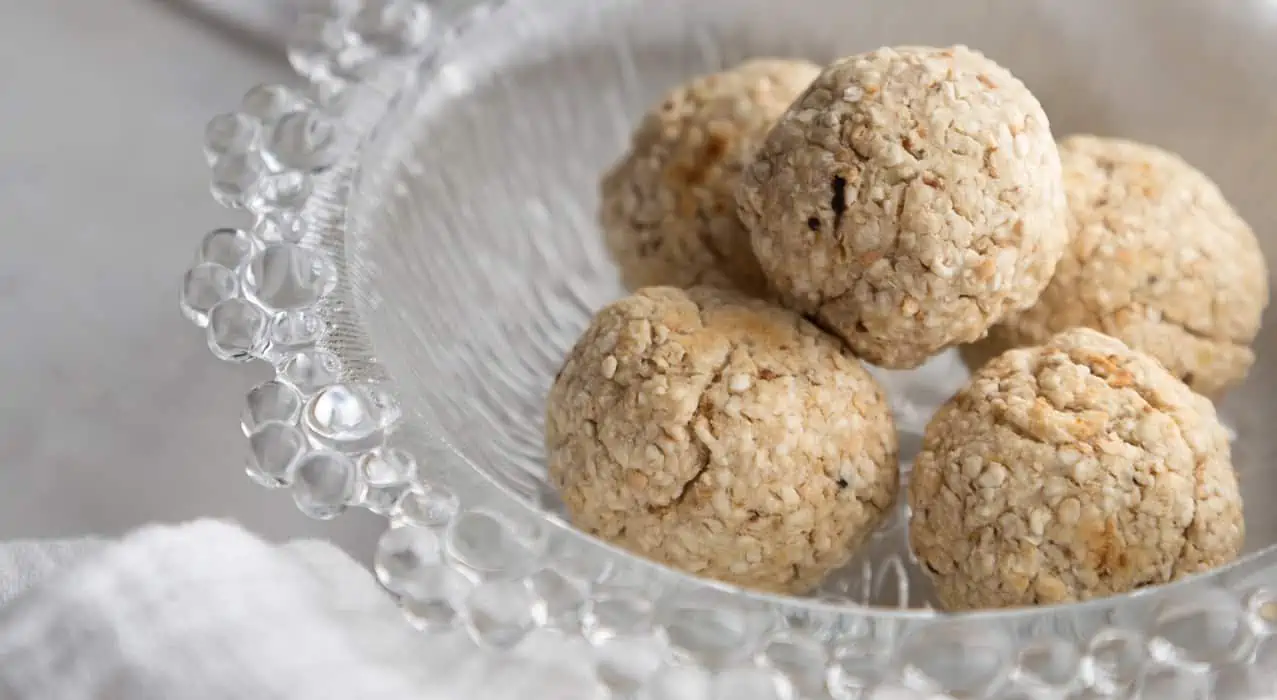
How To Upgrade a Vegan Seder Plate
A plant-based perspective offers a wonderful opportunity to incorporate new traditions into your celebration. I’ll share a few of these ideas that have become mainstays in my family’s Passover seders over the years. The first, of course, is the Seder plate!
A seder plate is the centerpiece of the Passover seder, and traditionally includes six symbolic foods—some of which are eaten, and others just displayed. Of the six, four are either already vegan or easy to incorporate vegan swaps.
- matzah
- charoset (using agave or vegan honey instead of honey)
- maror (bitter herbs)
- and karpas (vegetables)
Simple Seder Plate Swaps
The two non-vegan seder plate items are the shank bone and the hard-boiled egg. These aren’t used during the seder, so you can easily replace them with other items.
- Shank Bone: Replace the traditional shank bone with a roasted beet to represent God’s mighty arm that convinced the Egyptians to free the slaves.
- Hard-Boiled Egg: Swap the hard-boiled egg for an avocado seed to signify the second sacrifice that was offered on the eve of Passover at the Temple.
Many of the seder plate items have different interpretations in terms of what they signify. For those who interpret the hard-boiled egg to represent a symbol of fertility and renewal, then our friends at Jewish Veg recommend using a flower (or any other symbol of spring) as a substitute.
Get creative and design your own vegan swaps that honor Jewish symbols and traditions!
How to Be a Superstar Seder Host
As the only vegan at the seder, hosting can be challenging.
I go all-out for Passover, and wouldn’t have it any other way. But I remember the first time I hosted the holiday after becoming vegan. I was anxious about pleasing everyone with traditional dishes while still trying to honor my vegan values.
It wasn’t until I reflected on the tenets at the heart of the holiday—namely, freedom—that I found a way to transform my seders into something very special that merged my Jewish faith with my vegan principles.
Today, I host at least one seder for my family and friends and I’m told it’s one of their favorite holidays to celebrate at my home. Over the years, Passover has become my favorite occasion to introduce my non-vegan friends and family to plant-based foods aligned with the same compassionate values in the Jewish faith.
Set Expectations
First and foremost, as the host, it’s up to you to set the tone of the celebration so that your vegan and non-vegan guests, as well as those who adhere to Jewish dietary laws, feel comfortable and know what to expect.
One of the most enjoyable aspects of Passover seder is the traditions: from family rituals to the foods that have been eaten by Jewish communities at Passover throughout history, this isn’t the time for surprises to shock your hungry guests!
If you’re hosting a vegan Passover seder and your guests have come to expect certain traditional dishes, they may wonder what will replace animal-based meat dishes on the menu. This is a great opportunity to share your enthusiasm, set expectations for the occasion, make sure guests of varying levels of adherence to dietary laws have peace of mind, and teach how vegan values and Jewish traditions coexist.
Be sure to thank your family and friends in advance for their support!
Plan Your Menu With Your Guests
Jewish teachings value feeding the hungry and sharing food with others. Many Jewish families have the natural inclination to bring food to all occasions, and Passover will be no different! Some well-intentioned guests may even bring something they thought was vegan, only to discover it contains non-vegan ingredients.
If you’re planning on making all dishes yourself, be sure to communicate this to your guests to avoid potentially difficult conversations later on, as well as to make sure guests don’t feel like their contributions aren’t valued.
To help guests who want to bring a dish, you can:
- Share recipes for vegan versions of the dishes they want to bring, like this matzo ball soup!
- Share vegan wine recommendations that pair well with dishes that will be served during seder.
- Recommend a local restaurant or bakery that offers vegan dishes that would complement your menu.
This will make life easier for your guests and ensure that you have a delicious vegan meal!
Revive Old Customs
Instead of sitting through the entire seder without food until the part where the festive meal is served, remind your guests that it was a common custom in ancient times to begin meals with fresh vegetable hors d’oeuvres (dipping karpas). Relive the ancient tradition by providing a vegan crudite platter (sans leavened bread, of course) and a variety of hummuses to eat throughout the Seder.
Matzoh of Hope
Incorporate “Matzo of Hope” to your table as a symbol of hope honoring humans and non-human animals alike around the world who are not free to live a safe, joyous life free from harm.
Although food is a major focus at any holiday, remember that the true purpose is the connection and enrichment of our families and communities together. Happy Pesach!
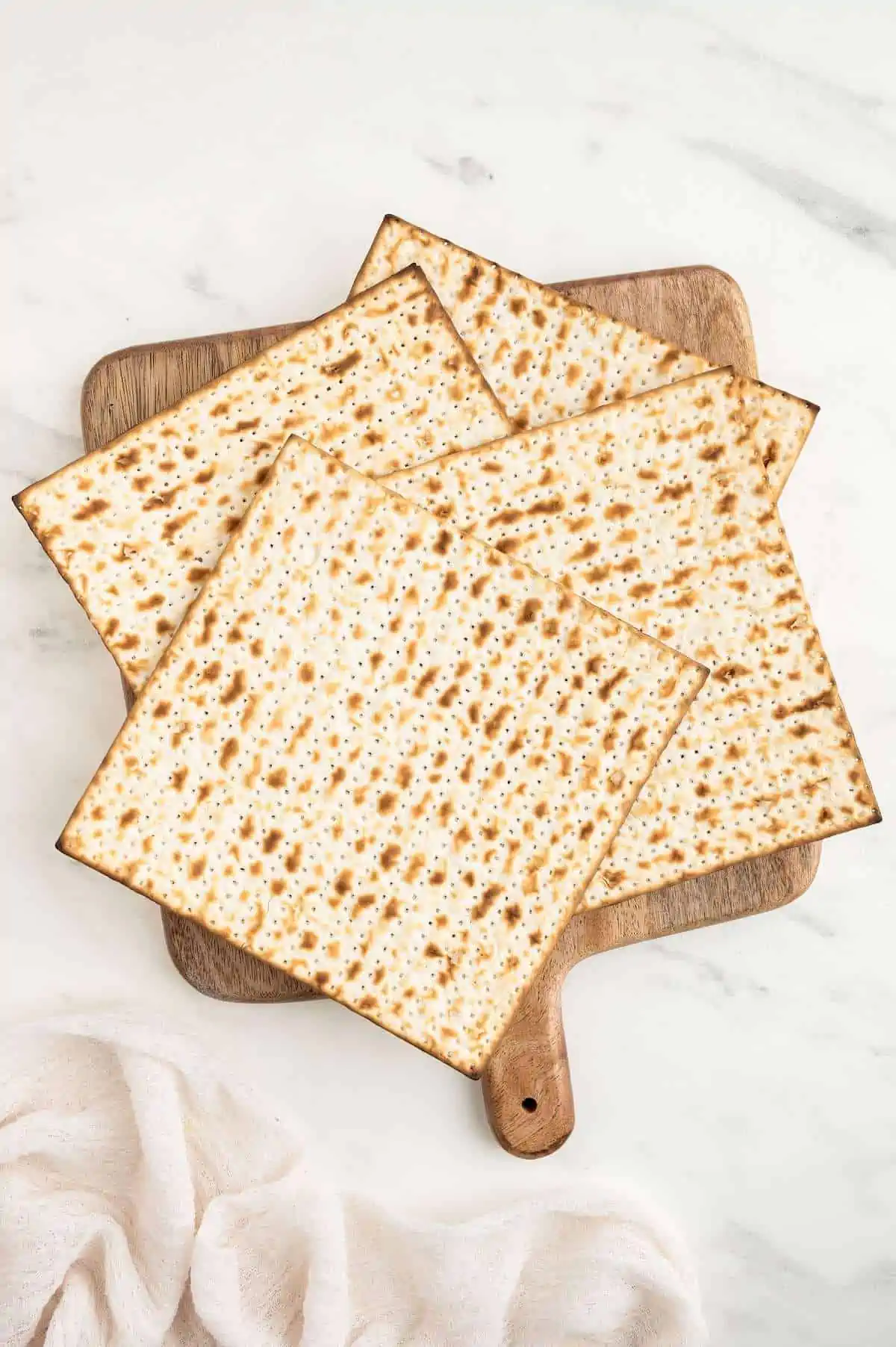

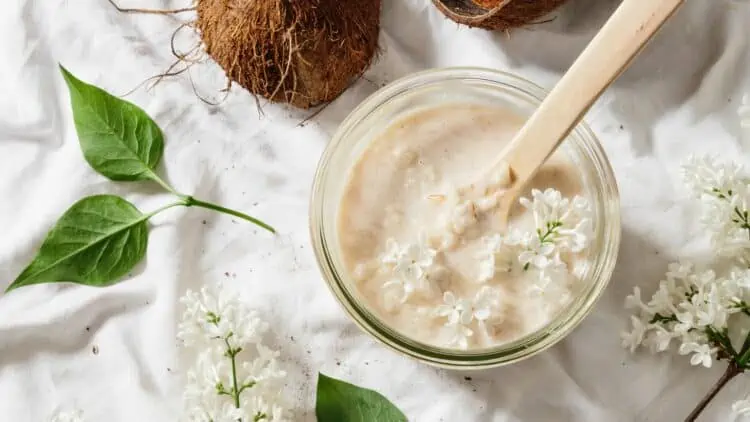
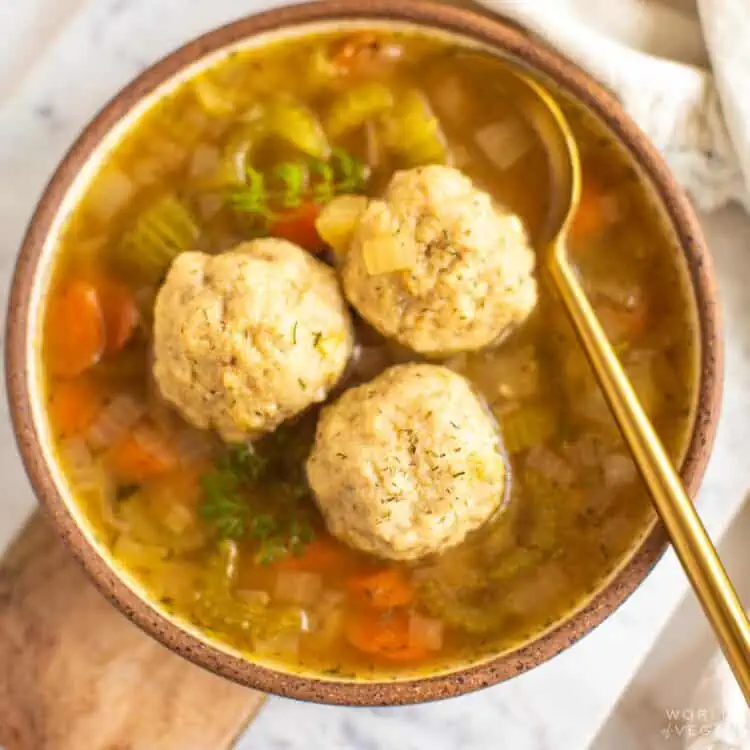
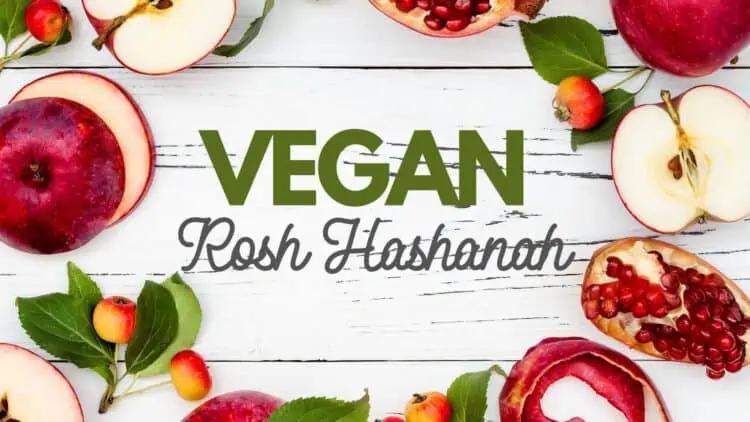
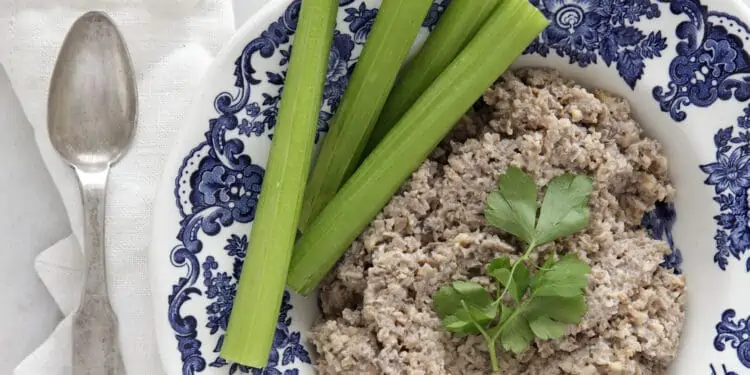

Leave a Comment